"As my studies at Central Saint Martin's in London were coming to an end, in 2002, when I was a 25-year-old, I felt the need to do something more, something that was not about me. I had lived such a privileged life. Not just because I was financially secure, but more so that I had always been very loved and respected. I wanted to reciprocate to those who might not have been so lucky. I decided to go to Mozambique, a former Portughese colony, to help wherever help was needed. Finding a way to do this was trickier and more expensive than I had imagined. I was naive in my thoughts but after some time and lots of bureaucracy, I ended up managing to secure a place to stay in Tete, in north Mozambique. My base would be at the nuns' house and I would work at an orphanage where children were placed because their parents had died of Aids. I underestimated the task ahead.
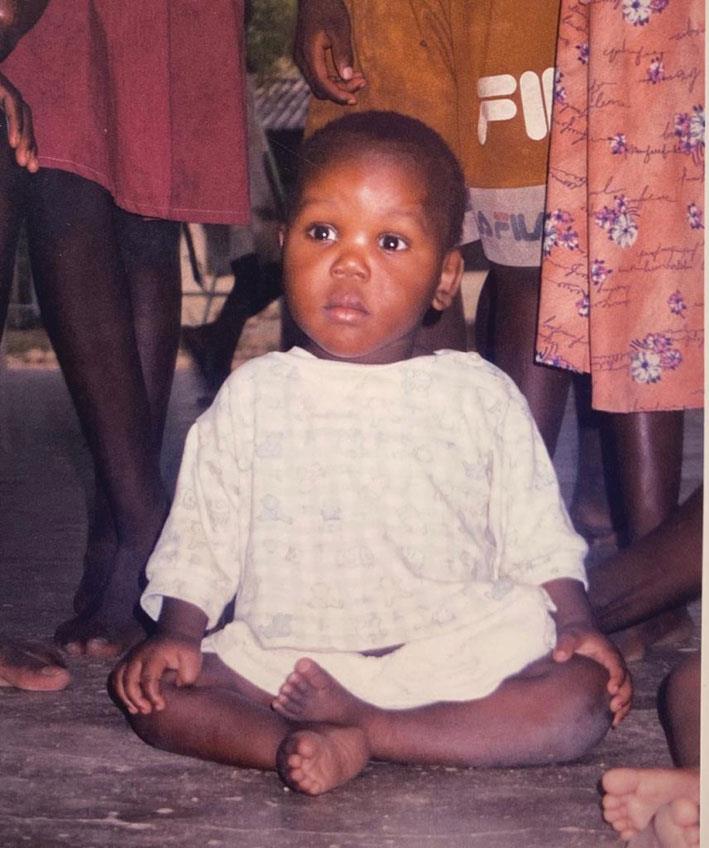
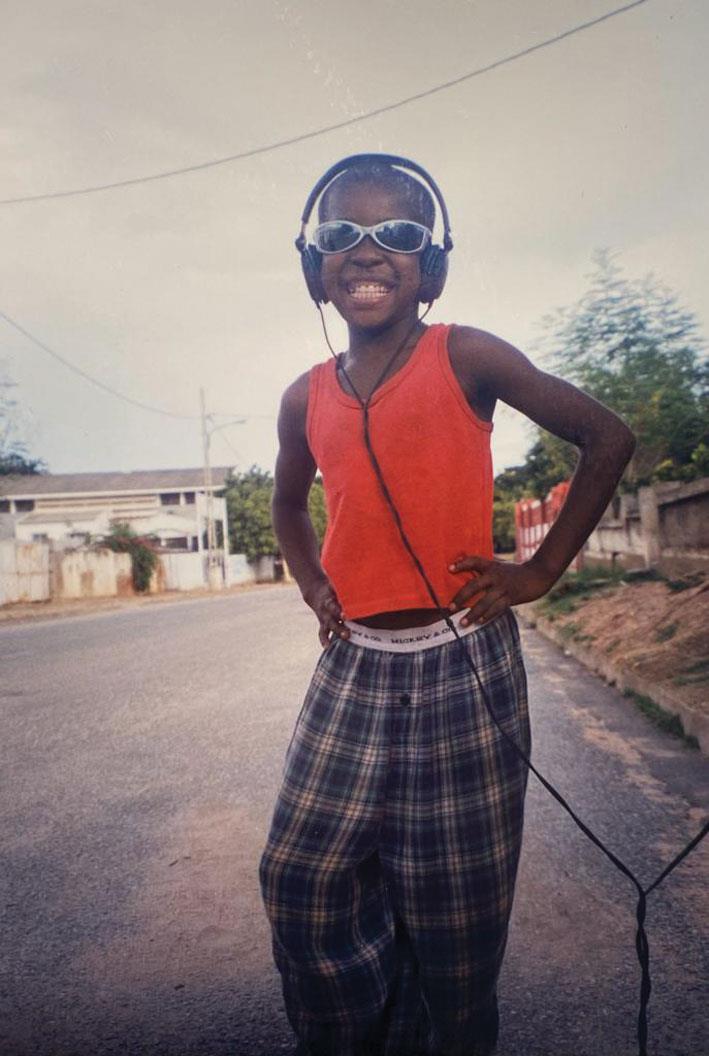
I arrived and was met by unimaginably hot weather. I knew it would be hot but this was really, really hot. I decided I couldn't, and I wouldn't complain about such things. That was the first of many small things from normal life back home in Portugal, that would be left behind, not the little comforts but the complaining. Quicky other priorities set in, and my perspective changed immensely. I started work early the next day. I walked to the orphanage and saw people with umbrellas in bright sunshine, and thought it to be a little excessive but shortly after suffering a serious sun stroke, I decided not to judge but to learn from people that knew better.
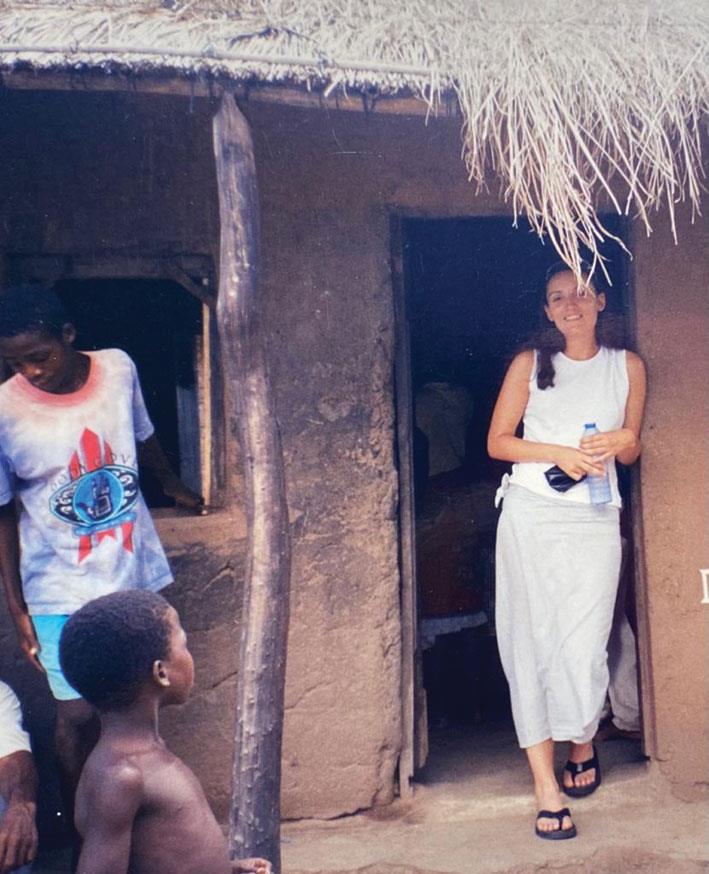
The first days, even weeks in Tete were tough, I cried a lot and was very close to going back home, more than once. I had been completely unprepared. The reality was much more real and raw than I could have ever imagined. I thought when I saw the news and read about the hardship in Africa, I had a clear idea of what I was getting myself into but nothing could have prepared me for the reality of such intense suffering.
The orphanage was a tough place to be at. Not because of the work itself but because of the hard truth, the unfairness. There were babies, toddlers, and teenagers, all living a life they didn´t deserve. It came down to luck really. They were born just like my three sons, but would grow with pain instead of love, that's the cards they were dealt as no one truly cared for them. It was devastating to stand there and question why I had been dealt a lucky hand; why me and not them? I was no more deserving than them. I really couldn´t make sense of it.
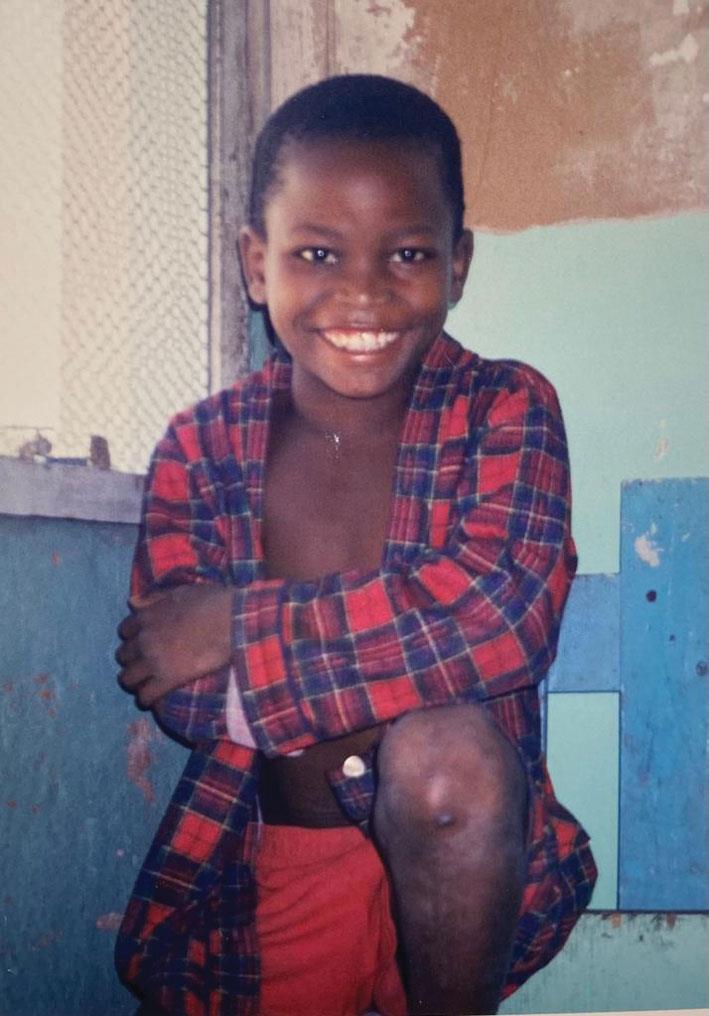
The children were so happy to see me. How could they smile, laugh, and sing on my arrival rather than feel resentful? It humbled me. Why were they so happy to see me? It wasn't immediately clear, the why, but with time I understood. It was not me per se but my presence, which brought a shred of hope and also a distraction from life as they knew it.
Some seemingly insignificent things were a big deal to them, like taking a turn to play with my straight long hair, something not common for them and that allowed for hours of fun. They would take turns braiding my hair, waiting patiently for their turn. This became a daily activity where my hair was divided in half and time slots were allotted so everyone could have a turn. I had never in a million years thought that my hair would play such a part in my time in Africa. It seemed like such a silly activity but it brought us close; the children would sit next to me chatting while waiting their turn. We would play word games and sing. A very simple way of just being.
I had, what at the time, I considered 'cool' sunglasses. I wouldn't be caught dead wearing them now but then again, I was a teenager and they were fashionable. These sunglasses were much sought-after. The teenage boys would shyly ask to borrow them and then go for a walk wearing them. Who would have thought wearing sunglasses for a day would bring so much happiness? There was one boy who felt special wearing them, he felt he stood out in them. He was a naughty boy so I agreed with him if he made an effort to change his ways that he could keep them when I left. He did and on the last day, before I left, I told him I loved him. I did. And gave him the coveted sunglasses. He cried. I cried too.
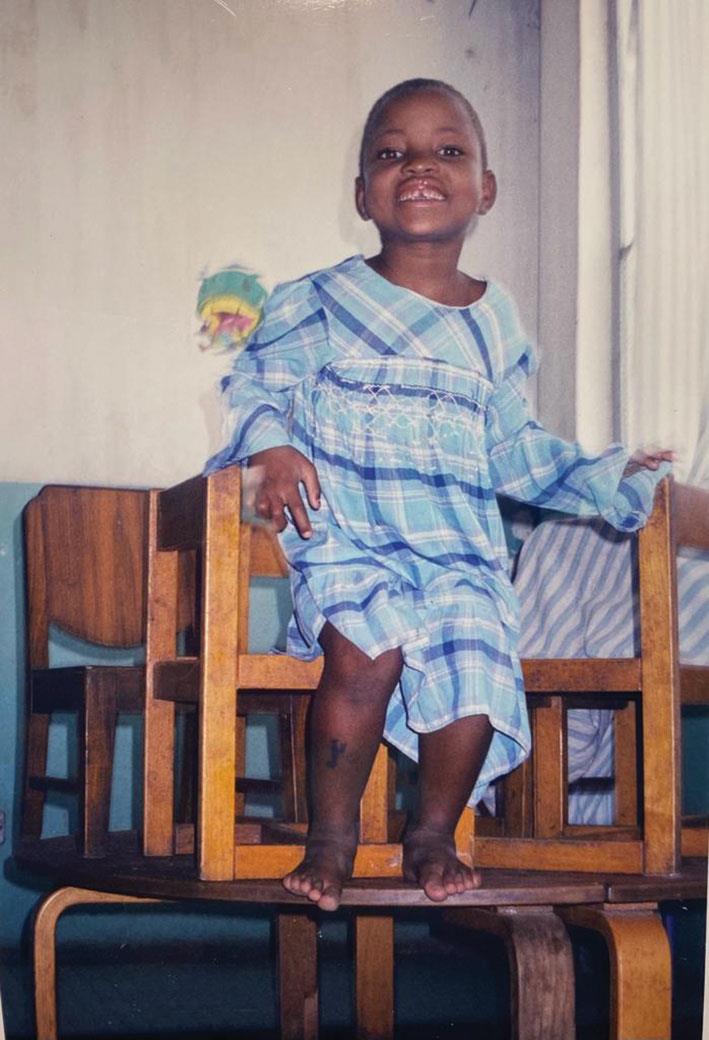
There were good moments, beautiful even but there were horrible ones, too. I struggled emotionally. I struggled when mothers with newborn babies would knock on the door asking for powdered milk because their breast milk had dried up and they had no money to buy powdered milk; they were sent away with nothing. There was only so much powdered milk to give out. They would try again the next day and the next but no luck. And then the next time they would come not for milk but to ask for help to bury their baby that had starved to death. On these occasions I felt angry, really angry. I had offered to go buy some milk. I had some savings from babysitting the Croatian ambassador's children in Portugal. I could have saved that baby but I wasn't allowed to do so. To emotionally process the death of a tiny baby I had held in my arms, from a preventable death was tough. This wouldn´t be the only time I would be faced with death. There were more times. Some hit me hard, like when this little girl, that was at the hospital and the doctors had said she was not going to make it. Her parents couldn´t afford to stay with her, they had to go back to work in the fields and take care of their other children. The decision to leave their dying daughter must have been an unbearable one to make. Actually, it wasn´t a decision because they had no choice. As a mother myself now I think back and feel the deep pain of those grieving parents. I decided I would visit this little girl every day at lunchtime. I had to do so in secret as she was not part of the orphanage. The hospitals do not provide food and everyone is poor so I saw no other way. My visit was useless as she was going to die anyway. This sounded so harsh. She was destined to die alone of either hunger or disease. I just couldn´t accept this so this time I decided I was not going to follow the rules. I spent every lunchtime with her. I bought her food; she ate very little. She was weak and as the days passed, she became weaker, to the point where she couldn't talk anymore so I just held her hand. Then one day over dinner, in a casual conversation I learned she had died. I felt this so deeply. I wasn´t equipped to process this kind of pain.

My time in Mozambique was extremely intense but there were also beautifully meaningful moments like when the teenage boys, who went to school during the day, worked after school, and then helped out at the orphanage with the smaller children, came to me and shyly asked me in Portuguese if I was willing to teach them English. Of course, I was. I felt it a privilege to be able to do something more. Again, this was done a little under the radar as the nuns were clear that my time there was to be spent caring for the babies and not teaching what they considered, useless English to teenagers. I taught them and they learned, they were given homework, that they would have to do during the daytime as there was no electric light in their room. Well, their room was actually the warehouse under the orphanage, their beds were the flour bags. They always managed to do their homework. They never had to be reminded, and never complained. They felt it an honour that I was teaching them and they made sure to fulfill every task requested of them. They would have such a big smile when they showed up to class because they were truly happy and very appreciative that I was there to teach them. I felt humbled.
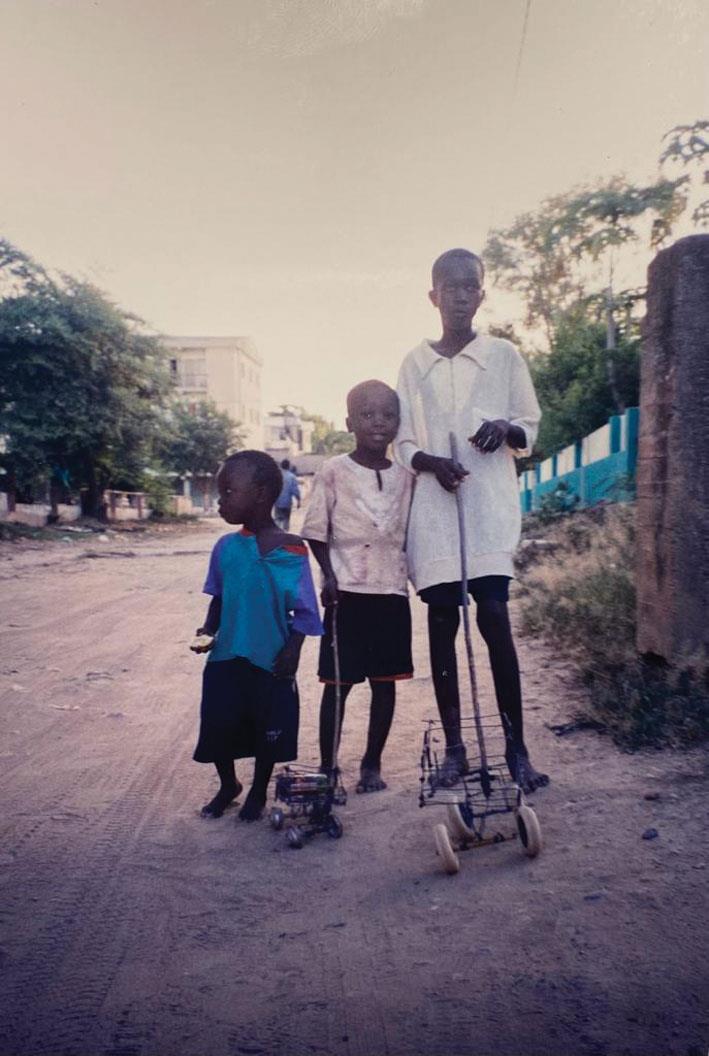
Visiting the hospital wasn't the only time I disobeyed the nuns. I am proud to say it happened many more times. Not because I wanted to be a rebel or destabilize their routines but because their reasoning for not allowing me to do certain things seemed poor at most. When I was asked to help the Doctors without Borders on a mission that needed a Portuguese and English-speaking person the nuns didn't allow it. It was confusing to me, why wasn´t I allowed to be of use, to help, in my free time? I was there and willing. Their reason? Doctors without Borders believed in treating HIV with the spreading of information, with the teaching of the use of condoms but as Catholic nuns contraception was not supported. I couldn't reason with that so on my days off I joined the doctors. Raised as a Catholic, who went to church every Sunday, the thought of lying to a nun was a scary one, to do it felt horrible but I was convinced I was making the right choice and God would forgive me.

In Tete, I learned that sometimes something small can have a big impact. I remember going on a trip for a few days and buying a crate of bananas to bring back for the children. I arrived with the crate and already from down the road the kids started running in my direction; if that doesn't fill your heart, I don't know what does. They were so happy I had come back. I was always coming back. They were used to the opposite; to people not coming back. They carried my bag, asked for my sunglasses, and sang my name all the way to the house. I told them about my little adventure in their beautiful country and then handed out the bananas. I put the ones that were mushy and brown to the side. Everyone got a banana, and I got many kisses and thank yous. All for a simple banana. When I went to pick up the bananas that were to be discarded, I couldn´t find them. The kids had eaten them. It took me only a minute to conclude the obvious. What I considered inedible bananas was a silly view of food and choices. When someone is hungry, even brown bananas get eaten.
There are so many stories from my time in Tete, some extremely sad, others extremely humbling but all served a purpose; for me there were learning and life-changing moments; for them some moments of happiness and fun but many of pain and suffering, that after I was long gone continued. The feeling of complete helplessness filled me because even though I came back and continued my efforts to support and help from afar the reality that is our world and the inequality of basic human needs is the saddest reality. Although my studies clearly helped me reach where I am today when it comes to a career, I do not doubt that my time in Tete did so too. Less directly but it most certainly moulded me and changed me.
(Filipa was talking to Marie Benoît to whom she is related by marriage)